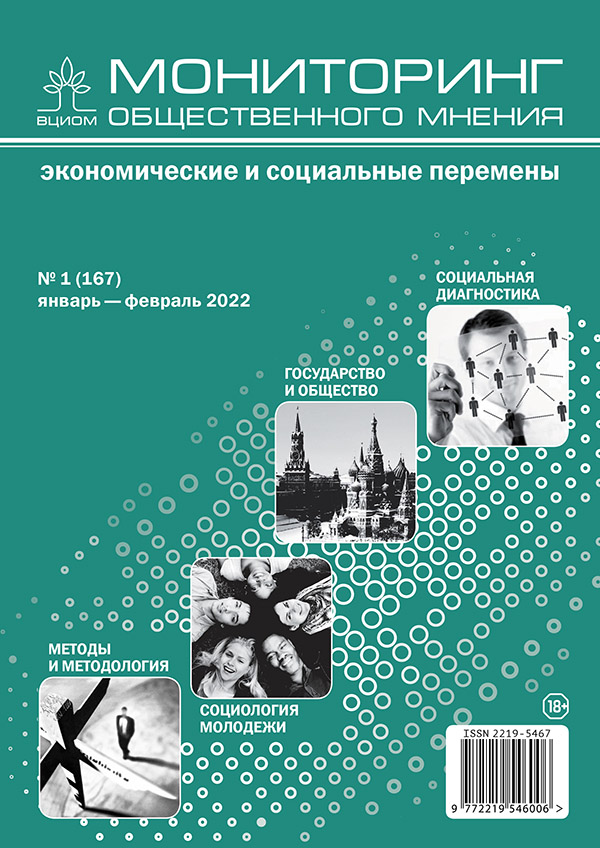Dynamics of the Socio-Economic Status of the Volgograd and Volgograd Region Population During the Second Wave of the Coronavirus Pandemic
DOI:
https://doi.org/10.14515/monitoring.2022.1.1978Keywords:
coronavirus, second wave, pandemic, self-isolation, state supportAbstract
The article studies subjective assessments of the socio-economic status among the residents of Volgograd and the Volgograd region in conditions of self-isolation during the second wave of the coronavirus pandemic (winter—spring 2021). The authors compare the world practices of supporting the population and the economy and describe the measures of state support for small and medium-sized businesses introduced in the region under study. The empirical analysis is based on the data of the author's sociological survey, which covers not only questions of an economic nature, but also psychosocial aspects of restrictive lockdown measures. The article considers the measures of socio-economic support of the population from the standpoint of the welfare state. Analysis of the survey data showed the deterioration of the socio-economic situation of the region's population. Residents of the Volgograd region are subject to fears due to the threat of job loss, their psycho-emotional state is characterized by anxiety; conflicts related to financial difficulties, as well as forced long-term stay with the rest of the family, have become more frequent. In addition, the work explicated the role of the media in constructing and recreating social fears and threats that affect public consciousness and have such consequences as excessive consumption, and narrowing the field of social contacts. In conclusion, the authors suggest possible directions for the future studies, considering the ongoing coronavirus pandemic and the uncertainty of the timing of its completion.
Downloads
Published
How to Cite
Issue
Section
License
Copyright (c) 2022 Monitoring of Public Opinion: Economic and Social Changes Journal (Public Opinion Monitoring) ISSN 2219-5467

This work is licensed under a Creative Commons Attribution-NonCommercial-ShareAlike 4.0 International License.






